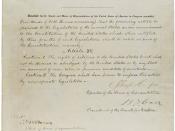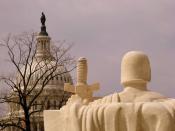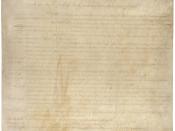'When a government restricts what its citizens can read, that is censorship. When parents have input on what local officials do in the schools, that is democracy' (Hernandez 12). Censorship, though not recognized in the general public, is far reaching and important to those who it affects. According to a report from People for the American Way, there were 338 challenges in 48 states to censor material, and 50% were successful (Hernandez 12). And everyone in our survey believed in censorship to some extent. The issue of censorship was ruled on in the Supreme Court in the 1970's. The case that most affected this issue was the case of Hazelwood v. Khulmeier. This case severely restricted students' free-speech and students' newspaper rights. Although many states are reversing this decision, it remains a landmark case in the history of school censorship. The case that came previous to this, Tinker v. Des Moines Independent School District, was a case expanding the freedoms of students in schools.
Although, censorship is a big problem there are solutions. One of them is the practice of self-censorship by students in schools.
Censorship is growing, two different studies show that cases of censorship are on the rise. Some of the cases are real challenges but others are merely an administration trying to see how much they can censor. Such is the case in Oregon of a principal who refused to allow the school's newspaper to publish the losses of the school's sport's teams ('Censorship, Tight Budgets Kill High School Newspapers.' 4). Other cases involve administration trying to protect themselves or other people in the administration. Like the principal who censored an article documenting financial improprieties by the
tennis coach, even though he felt the report was factual and accurate ( 'Censorship, Tight Budgets Kill High School...


